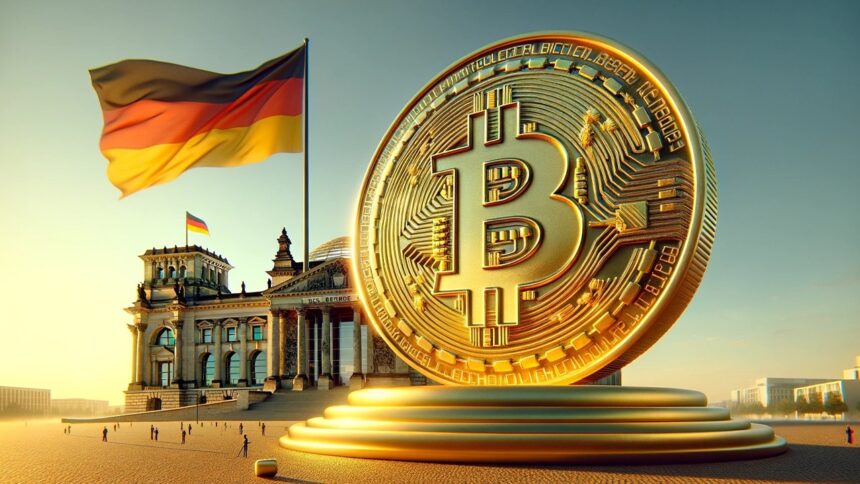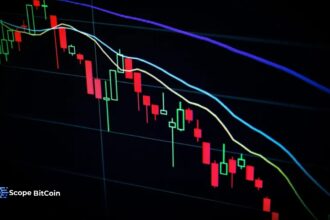Germany’s recent decision to sell almost 50,000 BTC at $53,000 per coin throughout June and July has resulted in an estimated “$1.84 billion in missed profits,” even though the excitement surrounding the Bitcoin market is growing daily. This is because Bitcoin reached a new all-time high of $89,956.88.
The “49,858 BTC sold would be worth about $4.48 billion at the current market prices.”
According to preliminary data, the German authorities raised almost $2.8 billion from the auction, which took place between June 19 and July 12. These bitcoins, worth $43,000, were taken from the owners of the website Movie2k, which hosted pirated films, in January.
German law requires authorities to sell assets involved in criminal prosecutions if their market value varies by more than 10% to protect losses from volatility.
However, the markets have been booming since the German government’s decision. July was worried that this Bitcoin sale might cause the market to become even more volatile, but Bitcoin has stabilized and is still trading above $55,000.
Bitcoin Surge Drives Optimism for $100K Target in 2024
This significant development brings Bitcoin close to the $90,000 zone. The likelihood of Bitcoin reaching $100K in 2024 is now at 62%, according to Polymarket. German parliament member Joana Cotar has expressed concerns about the US potentially adopting Bitcoin as a strategic reserve asset, implying that European countries might experience a “FOMO” effect.
The 30% surge in Bitcoin over the past week has been driven by a rally following Trump’s victory in the US presidential election, which has significantly impacted the global cryptocurrency market.
Due to this surge, many cryptocurrency traders are now forecasting that Bitcoin may reach $100,000 by the end of the year. However, some analysts are hopeful that Bitcoin will soon achieve this goal. With a market value of $1.74 trillion, Bitcoin is currently trading for $87,894.
Lessons from Germany’s Bitcoin Sale
Germany’s decision to sell 50,000 Bitcoin is not an isolated incident. It provides several important lessons for both individual investors and governments concerning handling large-scale crypto holdings:
- Timing the Market is Challenging: The German government’s sale highlights the difficulty of predicting the optimal time to buy or sell an asset like Bitcoin. While hindsight is 20/20, the decision to sell may have seemed reasonable, given the market conditions of the time. Bitcoin’s volatile price movements make it challenging for even seasoned investors to predict short-term price fluctuations accurately.
- Bitcoin’s Long-Term Potential: The increase in the value of Germany’s Bitcoin holdings illustrates Bitcoin’s long-term potential as an asset. The cryptocurrency market continues to evolve, with growing institutional adoption, increasing regulatory clarity, and the potential for Bitcoin to become a key asset in global portfolios. Governments and institutional investors may need to reconsider their strategies when it comes to holding or selling Bitcoin in the future.
- Governments and Digital Assets: Germany’s approach to handling its Bitcoin holdings offers valuable insights into the growing role of digital assets in government finances. While Germany was cautious in its approach, other countries, such as El Salvador, have made Bitcoin a national currency, and nations worldwide are contemplating how to engage with digital assets. This will continue to be an evolving conversation as cryptocurrency becomes more mainstream.
The Broader Impact on the Crypto Market
The German government’s sale of 50,000 Bitcoin also impacts the larger cryptocurrency market. Institutional or governmental entities’ large sales might affect market liquidity and cause price swings. In addition to potentially pushing prices lower at the time, the sale of so much Bitcoin was a sign of the market’s growing maturity.
The market may eventually see less volatility if Bitcoin continues to gain a foothold in international finance, particularly as institutional players get more involved. The sale and subsequent market rebound are part of a more significant trend in which Bitcoin, which was formerly thought of as a speculative asset, is now being seen increasingly as a store of wealth.
Conclusion
The German sale of 50,000 Bitcoin in 2022 is a critical moment in the history of cryptocurrency and sovereign investment in digital assets. While the sale brought in substantial cash at the time, the subsequent rise in Bitcoin’s value presents a significant opportunity cost for the German government.
Yet, whether this was a missed opportunity or a strategic move depends on the lens through which it is viewed. For some, the decision to sell represents a prudent financial move, locking in profits when Bitcoin’s future was uncertain. For others, it’s an example of short-term thinking that sacrifices long-term gains.
As Bitcoin continues to grow in prominence and value, the lessons from Germany’s 50,000 BTC sale will remain relevant to government and private investors. The cryptocurrency market is still in its early stages, and more decisions like those made in Germany will likely shape the financial landscape for years.
In the end, the only certainty is that Bitcoin’s future, like its past, will be full of volatility and surprises—and the opportunity for incredible returns will always come with significant risk.









